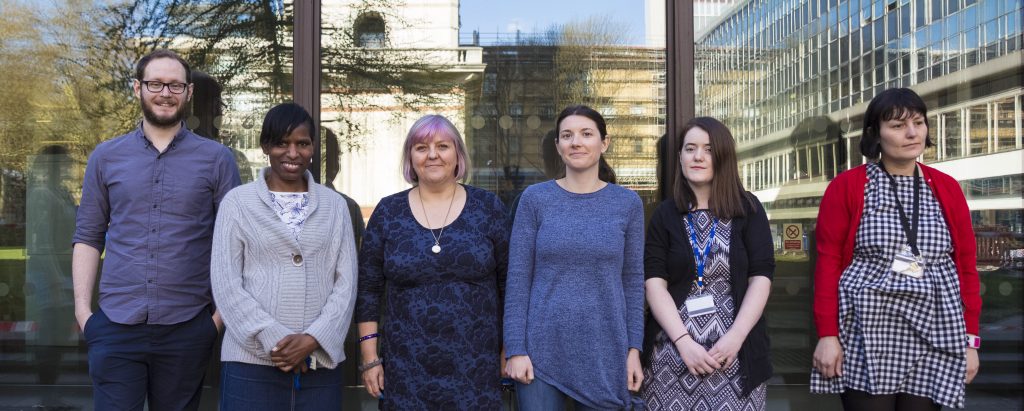Prior to taking up the role of Vice-Dean (Education) for the Faculty you’ve held senior Faculty and College level roles as Campus Director for St Mary’s and as a College Consul. (How) do you think you will be drawing on this experience in your new role?

I was Campus Director (or Campus Dean as it was then called) for St Mary’s for just over 5 years and I learned a lot during that period about what really matters on the ground at an academic campus –in particular I learned that the drive to ensure a good educational environment for our students has always, ultimately, come right at the top of our priorities. Whilst Imperial as an organisation is often considered to be heavily research-focussed, the reality I encountered when working with colleagues at the campus is that the imperative of delivering a curriculum to a high standard of quality was always acknowledged and staff across academic and non-academic functions work hard to make that happen. That’s a great piece of insight for me to take into this new role.
From 2013, I served as Clinical Consul for three years. This is a College level role and undoubtedly the role has grown my knowledge of the functions and complexity of the College as a whole, and allowed me to get to know the academic leadership and senior management team much more broadly. I hope that this combination of experiences in these roles will enable me to marry an understanding of institutional level drivers for development and enhancement with real acknowledgement of local impacts at a delivery level – and hopefully to draw knowledge upwards from a local level to influence and enhance institutional level engagement with key developments.
What has impressed you most about the education activities you’ve seen underway in the Faculty.
There is an outstanding cadre of people in the Faculty who support the education mission. The support I have received from Martin Lupton, Jane Saffell and the senior leadership team has been immense as I have come into the role, but equally I can now point to individuals right throughout our Faculty – and indeed beyond our borders within the NHS itself – who are extraordinarily talented and committed educators and tutors. From the perspective of expertise and dedication there is no limit to what we can achieve in our educational programmes – a challenge for me and the central team will be to ensure we continue to support and channel these skills in the best possible way to effectively enhance and innovate in our programmes, develop strongly as educationalists and respond to students’ needs.
As the College’s lead in the collaborative LKCMedicine, what benefits do you feel both parties, and students, receive from such endeavours?
I’ve had the privilege now to visit Singapore a few times and to see the new school in action. The real joy of being involved in a project like LKCMedicine is being able to see benefits being generated from the interplay between Imperial’s rich history and expertise in medical education with the fresh approach and quality of engagement to be found among our partners (with NTU, with our Singaporean governmental and healthcare partners, and from the student-base itself). These early years of new educational developments are immensely exciting times – I was at Southampton at a similar point in the development of its medical school some years ago, and what I witnessed there (as with here) is the high level of enthusiasm and sheer determination to ‘get it right’ that accompanies a new venture. That enthusiasm drives a huge amount of creativity and innovation – and ultimately quality!
For Imperial, it seems to me that LKCMedicine has been a hugely valuable development. Among our academic faculty, it’s given us a space and a framework to take a step back and consider a medical curriculum in the round, and to identify where we should be harnessing Imperial’s strengths to offer every one of our students a distinctive and outstanding education during their time with us. Much of the experience we have gained from that process is also feeding on into our own UK course developments.
In addition, the project has generated huge amounts of innovative teaching tools, technologies and approaches that we are now harnessing within our UK programmes. Most recently we’ve seen the beginning of what I think will be a really valuable opportunity for our students to meet and engage with their LKC peers (and vice-versa). This offers our students a unique development opportunity to share common issues as well as key differences arising from practicing medicine in different healthcare systems and with distinct sets of health challenges. Our first cohort of students from LKC Medicine visited last month and I hope to see these sorts of opportunities to broaden and enrich the learning experiences among our students flourish.
In your clinical research you also act as lead for one of the themed specialty clusters for the NIHR Clinical Research Network. What, in your experience are the key benefits of broad collaboration between clinical research environments, and how have you sought to foster them?
The evolution of the clinical research network infrastructure has been hugely beneficial to UK clinical research. Collaboration through the national networks plugs gaps at both ends of the clinical trial spectrum, from facilitating the development of major (1000+) multi-participant trials right down to enabling the study of extremely rare disease through creation of study participant groups which are of a sufficiently critical mass to allow statistically meaningful conclusions to be drawn. The networks have broadened the spectrum of partners involved in the clinical research mission. Through their efforts, major academic centres such as Imperial are not reliant on pre-existing collaborative relationships with a small number of major academic medical centres. District hospitals and local clinics as well as major specialist centres are now all engaged in (and talking to each other as part of) the process of identifying and recruiting participants. This process is strengthening the evidence base for our studies and broadening the skill-base across the UK for delivering clinical research. I’ve also witnessed the opportunity the networks have afforded to enhance understanding in the academic and health service sector of the particular approaches and pressures encountered by Industry partners for industry-sponsored studies. Increasing interaction with industry is going to be key for UK and academic medicine going forward and so the sharing of understanding and experience generated by the CRNs is extremely helpful in developing the strength of interaction which will be critical to our future collaborative development.
Are there any differences in the approach you take to your external and internal leadership roles.
Obviously both are focussed on delivering excellence and benefit, but I do think there has to be a slightly different focus for internal versus external roles. In my involvement in NIHR CRN, the key need has been to build up the tools, evidence and strong relationships which enable us to reach out to professionals and patients from widely differing parts of the healthcare delivery system and demonstrate what the benefits of involvement in research (and indeed of collaboration itself) are for their own services and professional development. For internal leadership at Imperial, there has to be a much more heavy focus on day-to-day delivery and enabling that to be as effective for the organisation as possible. The real challenge for internal roles is maintaining a balance between that focus on detail and delivery and retaining a strong sense of the ‘big picture’ and the long term strategy for supporting the College to continue to excel.
Looking forward, what do you see as your greatest challenge for education in the Faculty, and where do you feel the most potential for excellence is?
With changes in the funding and fee landscape, and rising delivery costs, it is going to be absolutely vital to ensure that an Imperial medical and science education does not become a treasure that only the wealthiest bright young people in our society can enjoy. Extending our educational opportunities to the most able students wherever they come from, and ensuring our student population is as representative as possible of the wider populace it will ultimately serve, is critical – we must continually challenge ourselves in the Faculty to support and enhance our strategies to ensure this.
The other great challenge I see for us in the Faculty is also one of our greatest opportunities for excellence. The sheer pace of development of new health technologies and approaches (not least within our own research labs, centres and spin-outs) coupled with a constant drive towards effective dissemination and uptake is creating a continually shifting health landscape for which we need to prepare our students. We cannot afford to rest on our laurels in the educational mission: what equips today’s medic for practice may tomorrow be redundant; an area of interdisciplinary research which was unheard of when today’s final year students first entered the MBBS may already be the basis of new care models for our health service when this year’s freshers graduate in six years’ time. We are outstandingly placed at Imperial to draw on our own discoveries, academic collaborations and translational expertise to continually review and future proof our curricula, translate our discoveries into widespread understanding, create the innovative skill-base among our students to drive future development and ensure Imperial graduates are the very best at operating in the health and scientific environment into which they will emerge. I think that’s an extraordinarily exciting opportunity and challenge for everyone in the Faculty.

 The Open Access Team are based in the Imperial College Library at South Kensington. We are the team that is on the ‘other end’ when you press the ‘deposit my publication’ button in Symplectic for uploading your manuscripts into Spiral, or when you make an application for support for article processing fees. We are here to help you comply with open access requirements, including the HEFCE Open Access policy.
The Open Access Team are based in the Imperial College Library at South Kensington. We are the team that is on the ‘other end’ when you press the ‘deposit my publication’ button in Symplectic for uploading your manuscripts into Spiral, or when you make an application for support for article processing fees. We are here to help you comply with open access requirements, including the HEFCE Open Access policy.